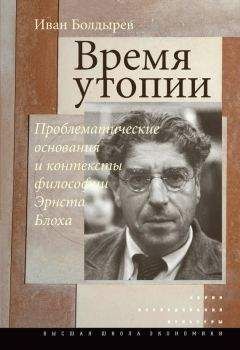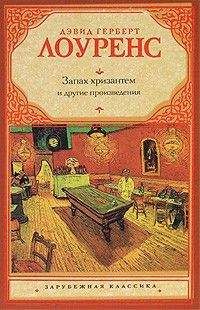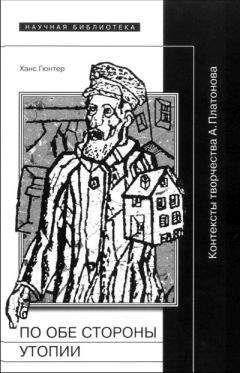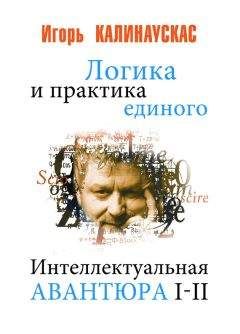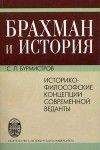Дэвид Лоуренс - Английский с Дэвидом Г. Лоуренсом. Тень в розовом саду / D. H. Lawrence. The Shadow in the Rose Garden
She began to cry again, but he took no notice (она снова начала плакать, но он не обращал внимания). She kept wiping her mouth on her handkerchief (она то и дело вытирала рот платком; to keep doing smth. – продолжать делать что-л.). He could see it, the blood-mark (он видел следы крови; mark – знак; метка; отметка; след, отпечаток). It made him only more sick and tired of the responsibility of it, the violence, the shame (это заставило его только еще больше тяготиться ответственностью за происшедшее, за жестокость, за стыд; to be sick and tired of: «быть больным и уставшим от» – быть сытым по горло, смертельно устать /от чего-л., кого-л./; violence – насилие; жестокость).
When she began to move about again (когда она снова начала двигаться), he raised his head once more from his dead, motionless position (он еще раз поднял голову из своего мертвого, неподвижного положения).
“I’ve not had anything to do with him,” she quavered.
“You just kept ’em because they were jewellery?” he said.
A weariness came over him. What was the worth of speaking any more of it? He did not care any more. He was dreary and sick.
She began to cry again, but he took no notice. She kept wiping her mouth on her handkerchief. He could see it, the blood-mark. It made him only more sick and tired of the responsibility of it, the violence, the shame.
When she began to move about again, he raised his head once more from his dead, motionless position.
“Where are the things?” he said (где эти вещи? – спросил он).
“They are upstairs,” she quavered (они наверху, – дрожащим голосом произнесла она). She knew the passion had gone down in him (она понимала, что на него нахлынула ярость; passion – страсть; пыл; приступ гнева; гнев).
“Bring them down (принеси их),” he said.
“I won’t,” she wept, with rage (не принесу, – плакала она от злости; won’t = will not; to weep – плакать, рыдать). “You’re not going to bully me and hit me like that on the mouth (ты не будешь запугивать меня и бить так по лицу; to bully – грозить, запугивать).”
And she sobbed again (и она снова зарыдала). He looked at her in contempt and compassion and in rising anger (он смотрел на нее с презрением, жалостью и возрастающим гневом).
“Where are they (где они)?” he said.
“They’re in the little drawer under the looking-glass,” she sobbed (они в маленьком ящичке под зеркалом, – проговорила она, всхлипывая).
“Where are the things?” he said.
“They are upstairs,” she quavered. She knew the passion had gone down in him.
“Bring them down,” he said.
“I won’t,” she wept, with rage. “You’re not going to bully me and hit me like that on the mouth.”
And she sobbed again. He looked at her in contempt and compassion and in rising anger.
“Where are they?” he said.
“They’re in the little drawer under the looking-glass,” she sobbed.
He went slowly upstairs, struck a match, and found the trinkets (он медленно поднялся наверх, зажег спичку и нашел побрякушки; to strike – ударять/ся/; высекать /огонь/; зажигать/ся/; trinket – безделушка; дешевое украшение). He brought them downstairs in his hand (он принес их вниз в руке).
“These?” he said, looking at them as they lay in his palm (эти? – спросил он, глядя на них, лежащих в его ладони).
She looked at them without answering (она посмотрела на них, не ответив). She was not interested in them any more (больше они ее не интересовали).
He looked at the little jewels (он посмотрел на маленькие драгоценности). They were pretty (они были прелестные).
“It’s none of their fault,” he said to himself (это не их вина, – сказал он самому себе = подумал про себя).
And he searched round slowly, persistently, for a box (и он медленно и настойчиво стал искать коробочку). He tied the things up and addressed them to Sam Adams (он перевязал /упакованные/ вещи и надписал адрес Сэма Адамса). Then he went out in his slippers to post the little package (потом вышел в домашних туфлях, чтобы отправить эту маленькую посылку).
When he came back she was still sitting crying (когда он вернулся, она по-прежнему сидела и плакала).
He went slowly upstairs, struck a match, and found the trinkets. He brought them downstairs in his hand.
“These?” he said, looking at them as they lay in his palm.
She looked at them without answering. She was not interested in them any more.
He looked at the little jewels. They were pretty.
“It’s none of their fault,” he said to himself.
And he searched round slowly, persistently, for a box. He tied the things up and addressed them to Sam Adams. Then he went out in his slippers to post the little package.
When he came back she was still sitting crying.
“You’d better go to bed (тебе лучше пойти спать; to go to bed: «отправляться в постель» – ложиться спать),” he said.
She paid no attention (она не обратила внимания; to pay – платить; to pay attention – обращать внимание). He sat by the fire (он сел у камина). She still cried (она все еще плакала).
“I’m sleeping down here (я сплю здесь),” he said. “Go you to bed (иди же спать).”
In a few moments she lifted her tear-stained, swollen face (через несколько секунд она подняла свое заплаканное, опухшее лицо; tear-stained – со следами слез; заплаканный; to stain – пятнать; пачкать; stain – пятно; to swell – надувать/ся/, раздувать/ся/; набухать; опухать) and looked at him with eyes all forlorn and pathetic (и посмотрела на него совершенно жалкими и несчастными глазами; forlorn – жалкий, несчастный; заброшенный). A great flash of anguish went over his body (сильная вспышка боли пронзила его тело; flash – вспышка /тж. перен./; яркое проявление /чувств, настроения и т. д./). He went over, slowly, and very gently took her in his hands (он медленно подошел и очень нежно обнял ее). She let herself be taken (она позволила обнять себя: «позволила себе быть обнятой»). Then as she lay against his shoulder, she sobbed aloud (затем, уткнувшись в его плечо, она зарыдала в голос; aloud – вслух; громко; loud – громкий):
“I never meant (я вовсе не хотела…) —”
“My love – my little love (любовь моя… моя крошка…; love – любовь; предмет любви, возлюбленный; возлюбленная; милый; милая) —” he cried, in anguish of spirit, holding her in his arms (восклицал он в мучении души = с мятущейся душою, обнимая ее).
“You’d better go to bed,” he said.
She paid no attention. He sat by the fire. She still cried.
“I’m sleeping down here,” he said. “Go you to bed.”
In a few moments she lifted her tear-stained, swollen face and looked at him with eyes all forlorn and pathetic. A great flash of anguish went over his body. He went over, slowly, and very gently took her in his hands. She let herself be taken. Then as she lay against his shoulder, she sobbed aloud:
“I never meant —”
“My love – my little love —” he cried, in anguish of spirit, holding her in his arms.
Wintry Peacock
(Зимний павлин)
There was thin, crisp snow on the ground (тонкий, хрустящий снег лежал на земле), the sky was blue (небо было голубое), the wind very cold, the air clear (ветер очень холодный, воздух чистый). Farmers were just turning out the cows for an hour or so in the midday (фермеры как раз выгоняли коров на час или около того в полдень; to turn out – выворачивать /карманы и т. д./; выгонять; mid – /уст./ середина), and the smell of cow-sheds was unendurable as I entered Tible (и запах коровников был невыносим, когда я вошел в Тайбл; shed – навес, сарай; to endure – вынести, вытерпеть). I noticed the ash-twigs up in the sky were pale and luminous, passing into the blue (я заметил, что ветви ясеней в небе = на фоне неба были бледные и светящиеся, переходящие в голубизну; twig – веточка, прут; ветка). And then I saw the peacocks (а потом я увидел павлинов). There they were in the road before me, three of them (они стояли на дороге передо мной, три /павлина/), and tailless, brown, speckled birds (бесхвостые, коричневые, пестрые птицы; tail – хвост; speckled – в крапинку, пятнистый; рябой, пестрый; to speckle – делать пестрым; пятнать; speckle – пятнышко, крапинка), with dark-blue necks and ragged crests (с темно-синими шеями и взлохмаченными хохолками; ragged – неровный, зазубренный; рваный; в лохмотьях; взлохмаченный; crest – гребешок, хохолок /у птиц/). They stepped archly over the filigree snow (они игриво ступали по филигранному снегу; archly – игриво, лукаво; ловко, хитро), and their bodies moved with slow motion (и их тела двигались с медленным движением = медленно), like small, light, flat-bottomed boats (словно маленькие легкие плоскодонные лодки). I admired them, they were curious (я любовался ими, они были необычные; to admire – любоваться, рассматривать с восхищением; восторгаться).
There was thin, crisp snow on the ground, the sky was blue, the wind very cold, the air clear. Farmers were just turning out the cows for an hour or so in the midday, and the smell of cow-sheds was unendurable as I entered Tible. I noticed the ash-twigs up in the sky were pale and luminous, passing into the blue. And then I saw the peacocks. There they were in the road before me, three of them, and tailless, brown, speckled birds, with dark-blue necks and ragged crests. They stepped archly over the filigree snow, and their bodies moved with slow motion, like small, light, flat-bottomed boats. I admired them, they were curious.
Then a gust of wind caught them (затем порыв ветра подхватил их; to catch – ловить, поймать, схватить), heeled them over as if they were three frail boats (накренил, точно это были три хрупкие лодочки; heel – пятка; каблук; крен /корабля/; to heel – прибивать каблуки; кренить/ся/), opening their feathers like ragged sails (раскрыв их перья, как потрепанные паруса). They hopped and skipped with discomfort, to get out of the draught of the wind (они подпрыгивали и подскакивали неловко, чтобы выбраться из-под ветра; discomfort – неудобство, неловкость; draught – тяга, тяговое усилие; сквозняк). And then, in the lee of the walls, they resumed their arch, wintry motion (а потом, защищенные стенами, они продолжили /расхаживать/ своей игривой зимней походкой; lee – защита, укрытие; подветренная сторона; to resume – возобновлять, продолжать; motion – движение; походка), light and unballasted now their tails were gone, indifferent (легкой и неустойчивой теперь, когда у них выпали хвосты, и безразличные; unballasted – не имеющий балласта /о судне и т. д./; неустойчивый; to go – идти; уходить; исчезать). They were indifferent to my presence (они были равнодушны к моему присутствию). I might have touched them (я мог бы их потрогать). They turned off to the shelter of an open shed (они повернули к укрытию /в виде/ открытого сарая).
